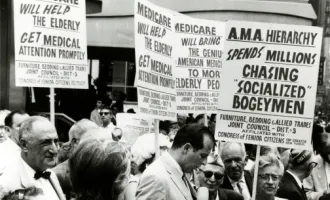On Guns and Passion
On Wednesday, April 17, the United States Senate voted down a series of bills aimed at strengthening federal gun control laws, including a bipartisan compromise expanding background checks for gun buyers.
Although the political conversation in the aftermath of the Newtown shootings seemed to indicate a renewed willingness for Congress to tackle gun control, hopes for any federal action on the issue were thoroughly deflated by the bills’ defeats.
Reaction from the bills’ supporters was swift and forceful. In an op-ed piece in The New York Times, former U.S. Representative Gabrielle Giffords, herself a recent victim of gun violence, wrote: “Speaking is physically difficulty for me. But my feelings are clear: I’m furious.”
President Barack Obama, flanked on national TV by relatives of the children killed last December in Newtown, Conn., put it as bluntly: “So all in all, this was a pretty shameful day for Washington.”
These proponents of expanded gun control measures sure didn’t lack in passion. But in the collective post-mortem analysis of these bills, passion was also singled out as a crucial factor in their demise.
How else to explain the failure of the bipartisan measure to expand background checks, an issue receiving support from 91 percent of Americans in a January Gallup poll? (I should note here that a host of other important factors contributing to the Senate’s vote have been cogently discussed, including compelling arguments about the demographics of gun-rights majorities in the 50 states.)
“Passion is the sine qua non of politics … the number of people who prefer more gun control rather than less don’t — by and large — feel that way with a deep burning desire in their soul,” wrote Chris Cillizza of The Washington Post.
On the other hand, the passion of individuals involved with gun rights groups such as the National Rifle Association has been a political force to behold.
A Washington Post-ABC News poll found that while only 43 percent of adults reported living in a gun-owning household, one in five of gun owners reported having called, written or emailed a public official to express their views on gun control.
This figure is double the percentage of non-gun owners who have done the same. According to Vice President Joe Biden, this passion gap figured into the political arithmetic of his former colleagues in the Senate, who expressed concern not about the indifferent 90 percent in support of expanded background checks, but about the impassioned 10 percent who would doggedly work to vote them out of office.
How then can we understand the role of passion in the American political process today? Where does it originate? How is it sustained? Who can wield it?
These questions, I think, cut across not just the recent political tides of gun control, but broadly apply to other issues that have inflamed the passions of different pockets of American civic life.
Particularly interesting work can be found in the field of political theory, too extensive to do justice here, which has examined the history, ethics and philosophy of passion in political life. (I can direct interested readers to the November 2002 issue of Philosophy and Social Criticism, which ran an entire issue on this question.)
While the congressional debate over gun control may be on hold for now, I cannot get Ms. Giffords’ impassioned words in her New York Times op-ed out of my mind: “I will not rest until we have righted the wrong these senators have done …” Her passion was not enough to tip the scale for the Senate’s recent vote. How this passion will match up against the impassioned 10 percent remains to be seen.


